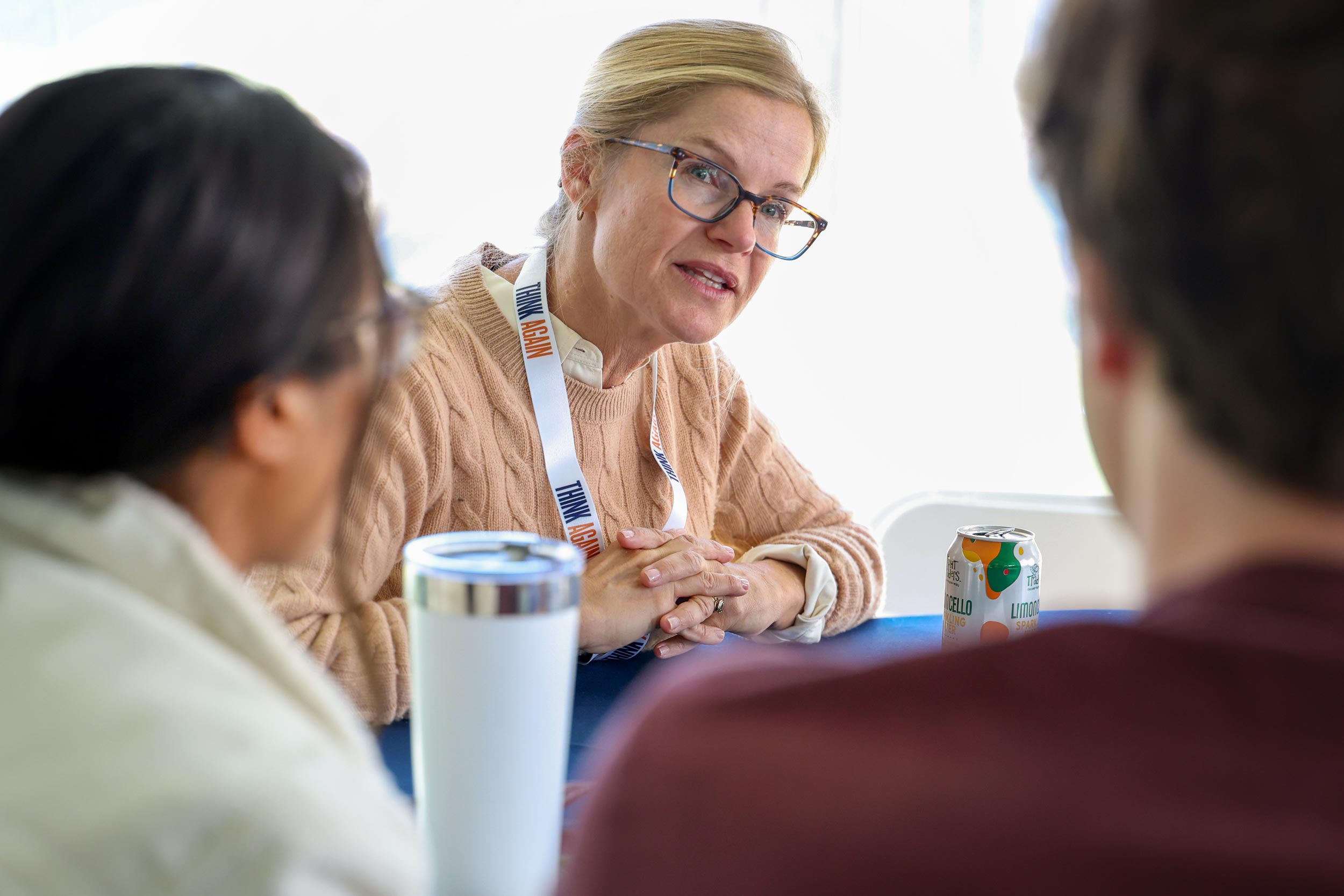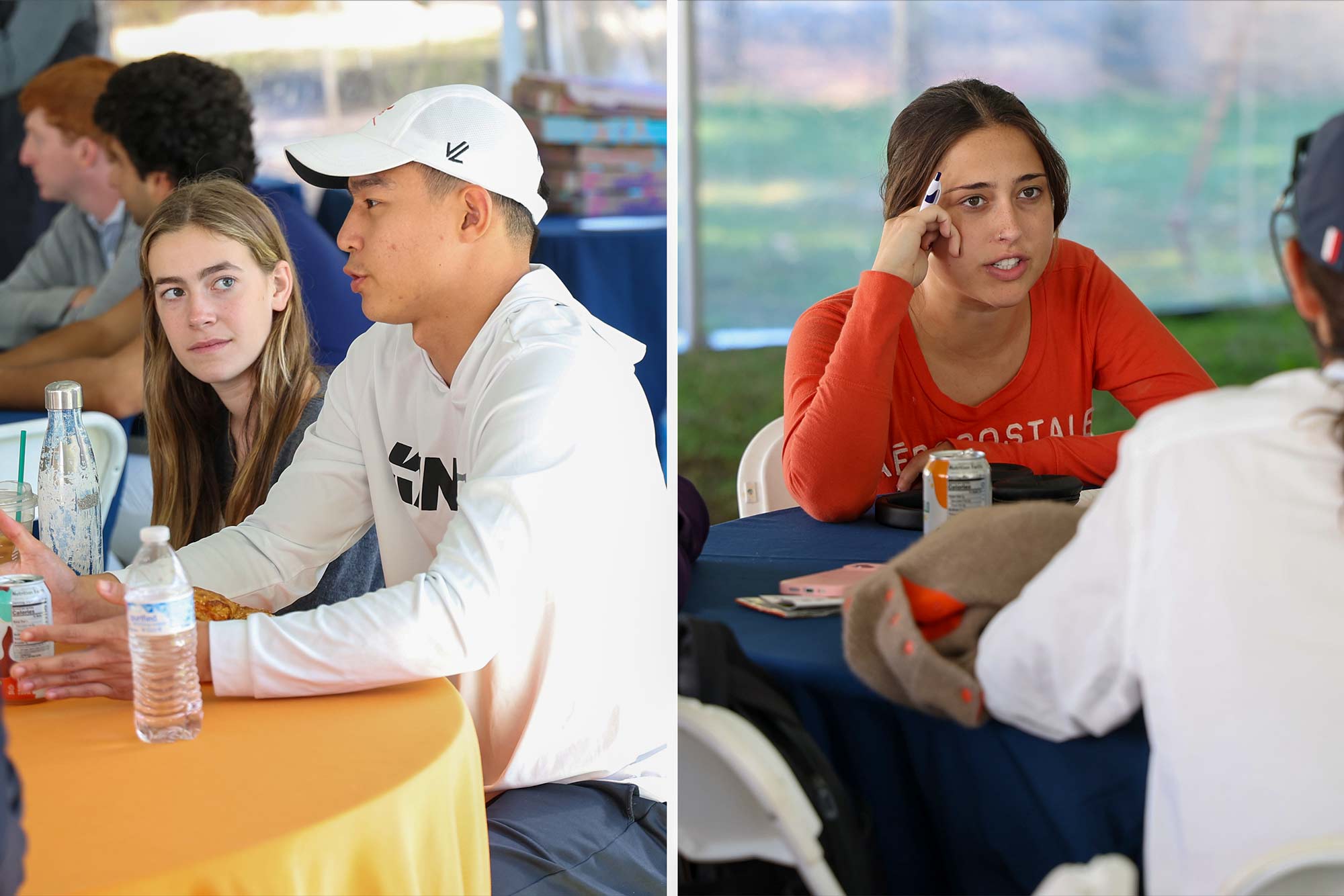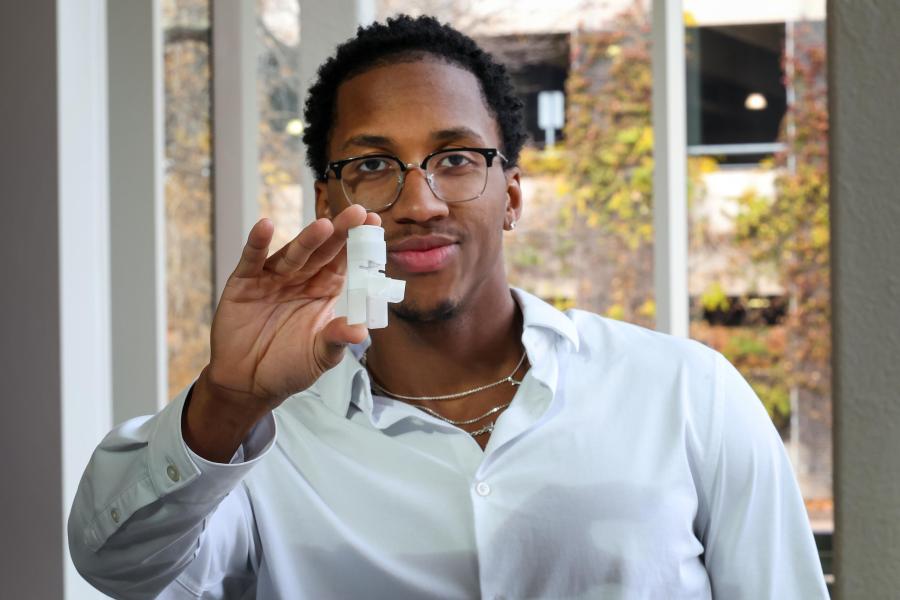Seven University of Virginia professors ducked into an event-style tent pitched on the grass outside Peabody Hall last week. Each sat at a table and proclaimed three hot takes they were prepared to defend.
Some were weighty:
- “AI companies should be held liable for their chatbots that contributed to the suicides of teenagers.”
- “Future conflict with China over Taiwan is inevitable.”
- “We should abolish voting and randomly select all local and state political offices.”
Other statements were less consequential, but just as controversial:
- “UVA is putting up too many ugly, modern-style buildings.”
- “There should be a bar in Newcomb (Hall).”

Students and professors gather around tables to discuss hot topics outside of Peabody Hall. “Disagree With a Professor” sessions usually unfold with less fanfare, but this session was part of the Karsh Institute of Democracy’s “Democracy360” event. (Photo by Matt Riley, University Communications)
Then dozens of students filed into the tent, spied a statement they didn’t agree with, and sat down across from the faculty member.
“I love disagreeing with my professors,” Lily Bass, a fourth-year student from Arlington, said. “I think most professors at this school are very agreeable and open to having tough conversations with their students.”
“Disagree With a Professor” isn’t new. It’s a regular offering from Think Again at UVA, an organization that promotes “freedom of expression, viewpoint diversity, intellectual humility and critical thinking.” But this one, set up in a very public space as part of the Karsh Institute of Democracy’s “Democracy360” event, drew more attention than most.
Mac Wang, a first-year student from China, had attended a previous session when it was offered as an alternative to class attendance. He liked it so much that he eagerly joined last week’s session.
“This type of event really helps my critical thinking,” he said. “I really enjoy talking with my professors, agreeing and disagreeing with them. There is value in having intellectual conversation and dialogue and disagreements with professors and my peers.”











